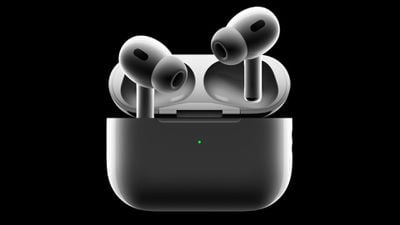All four new iPhone 14 models and the second-generation AirPods Pro include support for Bluetooth 5.3, according to Apple's tech specs for each device, but the status of LE Audio support for the devices remains unclear at this time.

LE Audio, which can be supported on any device with Bluetooth 5.2 or higher, is a low-power audio streaming specification that would have several benefits for devices within the Apple ecosystem. Earlier this week, we outlined five benefits that LE Audio could have for AirPods Pro in particular should Apple support the specification:
- Improved audio quality: LE Audio includes a new low-power audio codec called LC3 that provides improved audio quality compared to the classic SBC codec, even at a 50% lower bit rate, according to the Bluetooth SIG.
- Longer battery life: With the low-power LC3 audio codec, AirPods Pro would have longer battery life for audio playback.
- Multi-stream audio: LE Audio would enable the transmission of multiple synchronized audio streams between a source device like an iPhone or Mac and the AirPods Pro. This would allow for an individual left and right AirPod to each have its own Bluetooth audio connection with a device supporting LE Audio for improved reliability.
- Connect many pairs of AirPods to an iPhone at once: LE Audio would allow for many pairs of AirPods to simultaneously connect to an iPhone, iPad, Mac, or other device with Bluetooth 5.2 or higher. Apple already has a feature that allows an iPhone or iPad user with AirPods to share audio with another person with AirPods, but the feature does not work with more than two pairs of AirPods.
- No switching between iPhone and Mac required: LE Audio would allow AirPods to connect to multiple source devices like an iPhone and Mac simultaneously, eliminating the need to switch the AirPods between devices.
Apple's press releases and tech specs pages for the iPhone 14 and new AirPods Pro do not appear to make any mention of LE Audio or the benefits listed above, leading us to believe that LE Audio might not be supported on the devices currently, but we've reached out to Apple for confirmation. In July, the organization behind Bluetooth said it anticipated availability of products with support for LE Audio to ramp up by the end of 2022.
Given that iPhone 14 models and the new AirPods Pro have Bluetooth 5.3 chipsets, it is possible that Apple could enable LE Audio with a software/firmware update in the future should the devices not currently support the specification.


















